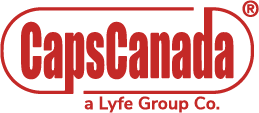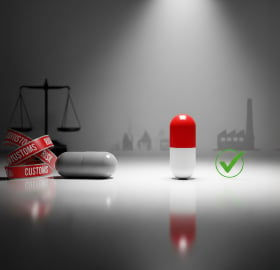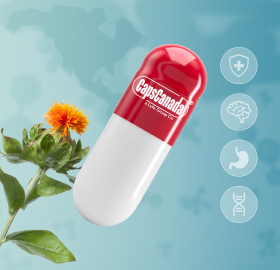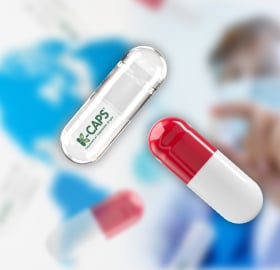As consumption rises, several industries are compelled to adopt sustainable practices, notably the pharmaceutical industry. So, in order to determine the most pressing sustainability issues facing the pharmaceutical businesses, Verdict ran a poll.
According to 43% of respondents, environmental sustainability is the most important issue for the pharmaceutical business to address. Climate change, on the other hand, was deemed the most serious environmental issue by 52% of those who voted for environmental sustainability, followed by pollution (32%), natural resources (11%), and biodiversity (5%).
Also, a study published in the Journal of Cleaner Production assured that the worldwide pharmaceutical business is a major polluter, emitting 55% more greenhouse gasses than the automobile industry in 2015.
The need to implement sustainability in the pharma industry has received support in recent years, as the industry generates a lot of waste and emits a lot of greenhouse gasses, in addition to consuming a lot of water.
Pharmaceutical Technology assures that high energy usage, complex supply chains, and pollution are only a few of the environmental issues that the business must face. Fortunately, by optimizing production processes and supply chains, and focusing on offering affordable medications and treatments to nations with underfunded healthcare systems, the industry can increase value while simultaneously ensuring environmental and social sustainability.
The Need of Creating a Sustainable Supply Chain
While some effects of climate change, such as continued sea level rise, cannot be reversed, “strong and sustained reductions in carbon dioxide (CO2) and other greenhouse gases (GHGs) would limit climate change” going forward, according to the latest Intergovernmental Panel on Climate Change report, released in August 2021.
The pharmaceutical industry, like other manufacturing sectors, contributes to CO2 and GHG emissions, and recognizes the need to improve its operations sustainability.
The ideal way to create a sustainable supply is to have a fully digitized supply chain that provides visibility across the whole value chain, allowing pharmaceutical businesses to improve efficiency, alter routing and suppliers in real time, and maintain quality throughout the process.
The truth is that, for most of the firms, the supply chain is still largely fragmented, it has no unified digital threat running across it, which blocks any effort to better the end-to-end process.
B Corp Accreditation: One of The Most Important Steps
In 2015, the United Nations launched the 17 Sustainable Development Goals (SDGs) as part of the 2023 Agenda for Sustainable Development defining targets and indicators that the global community must achieve in order to safeguard the planet and its society. Reaching these goals will require global collaboration of key stakeholders, including governments, institutions, businesses, advocacy organizations, and individuals. The SDGs are a valuable framework to achieve true sustainability in the pharmaceutical industry.
Pharmaceutical Companies seeking B Corp accreditation (companies that meet the highest standards of social and environmental performance, public transparency, and legal accountability) must review their current business practices, identify inefficiencies in the value chain, conduct health economic analyses, and develop and implement new policies, services, and processes that are aligned with the SDGs.
Keep learning about capsule technology trends...
- Are Liquid Filled Capsules the Right Delivery Method for Your Formula?
- Vitamin and Supplements Trends
- Clinical Trial Capsules: 4 Key Features to Look For
Some companies are reconsidering traditional R&D methods, such as looking for ways to cut waste and energy usage, committing to become carbon neutral, and focusing on plastic neutrality and water sustainability. For businesses, there are opportunities.
Transparency: The Main Key
According to PharmExec, the pharmaceutical sector has made significant progress toward transparency, but there is still much more to be done. Companies might, for example, make clinical study data more accessible to external researchers, clinicians, and patients, from both ongoing and completed trials. Transparent communications can aid pharmaceutical businesses in meeting their sustainability goals and gaining and maintaining the trust of stakeholders, such as existing and future investors and workers.
At CapsCanada, gelatin capsules are made from 100 percent bovine hide and are Kosher and Halal certified to cater to a wide range of customers. We never use gelatin from genetically modified animals and keep a consistent supply of gelatin capsules on hand, with a four-month supply available at all times.
Discover our certifications:
Kosher certification
Kosher products are linked to Jewish dietary laws and every kosher product complies with a series of strict rules about its origin and production.
Halal certification
Halal, an Arabic term that means "permissible," refers to the Islamic diet, including the way that meat is processed.
Vegan Registration
This registration guarantees that, in the manufacturing process of the capsule, no animal ingredient or by-product were used.
BSE and prions -free
BSE stands for Bovine Spongiform Encephalopathy (also known as mad cow disease)
Fair Trade
Fair Trade certifications guarantee that your product and company respects transparency, democratic development, social progress andecological sustainability in production systems.















